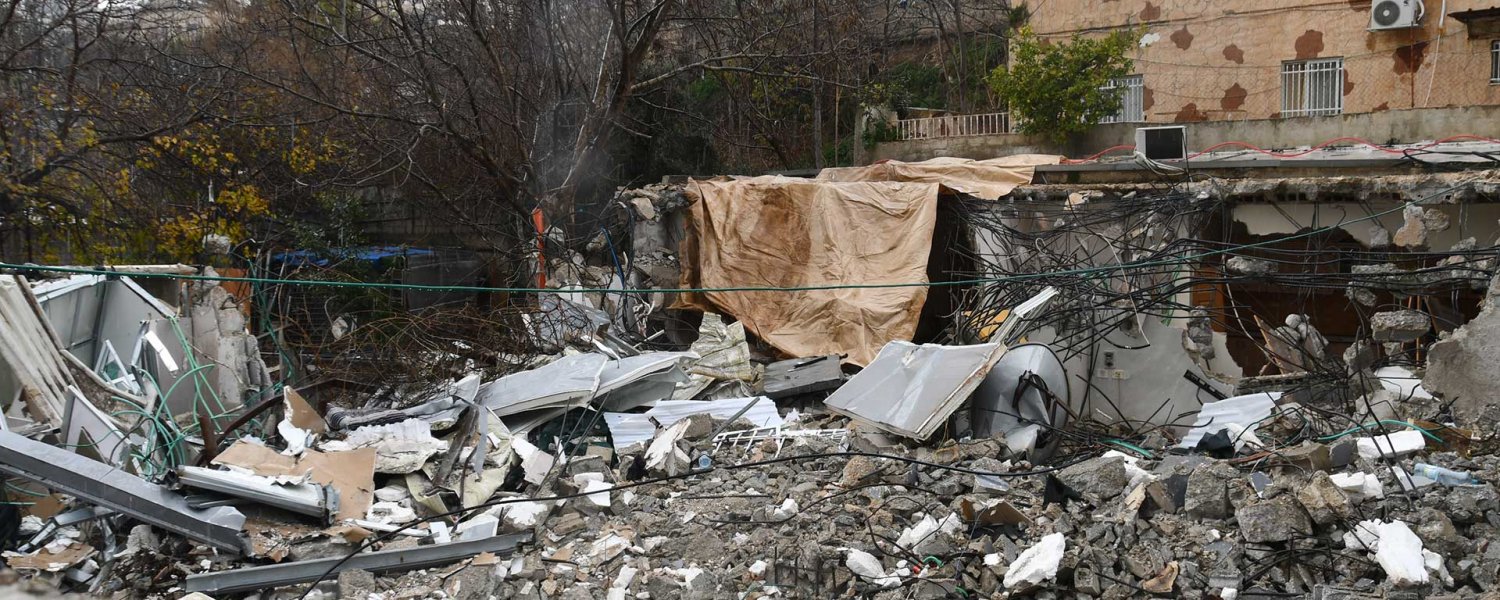Around 9:00 a.m. on February 14, 2024, a group of masked Israeli officers decked out in riot gear and with their rifles drawn descended on the home of Fakhri Abu Diab, a leading Palestinian activist and spokesperson for the Silwan neighborhood of East Jerusalem. After Israeli police forcibly removed Fakhri and his family from the home, where he and his family had lived for generations, a municipal bulldozer demolished it.
“All of the memories, my wife and I together, everything is underneath all the rubble,” Fakhri told Jerusalem Story.1
“They demolished the memory, the past and the future. They did not demolish just the ceiling or the house,” he said.2
His family of seven3 is now homeless and sleeping in a different place every night.



